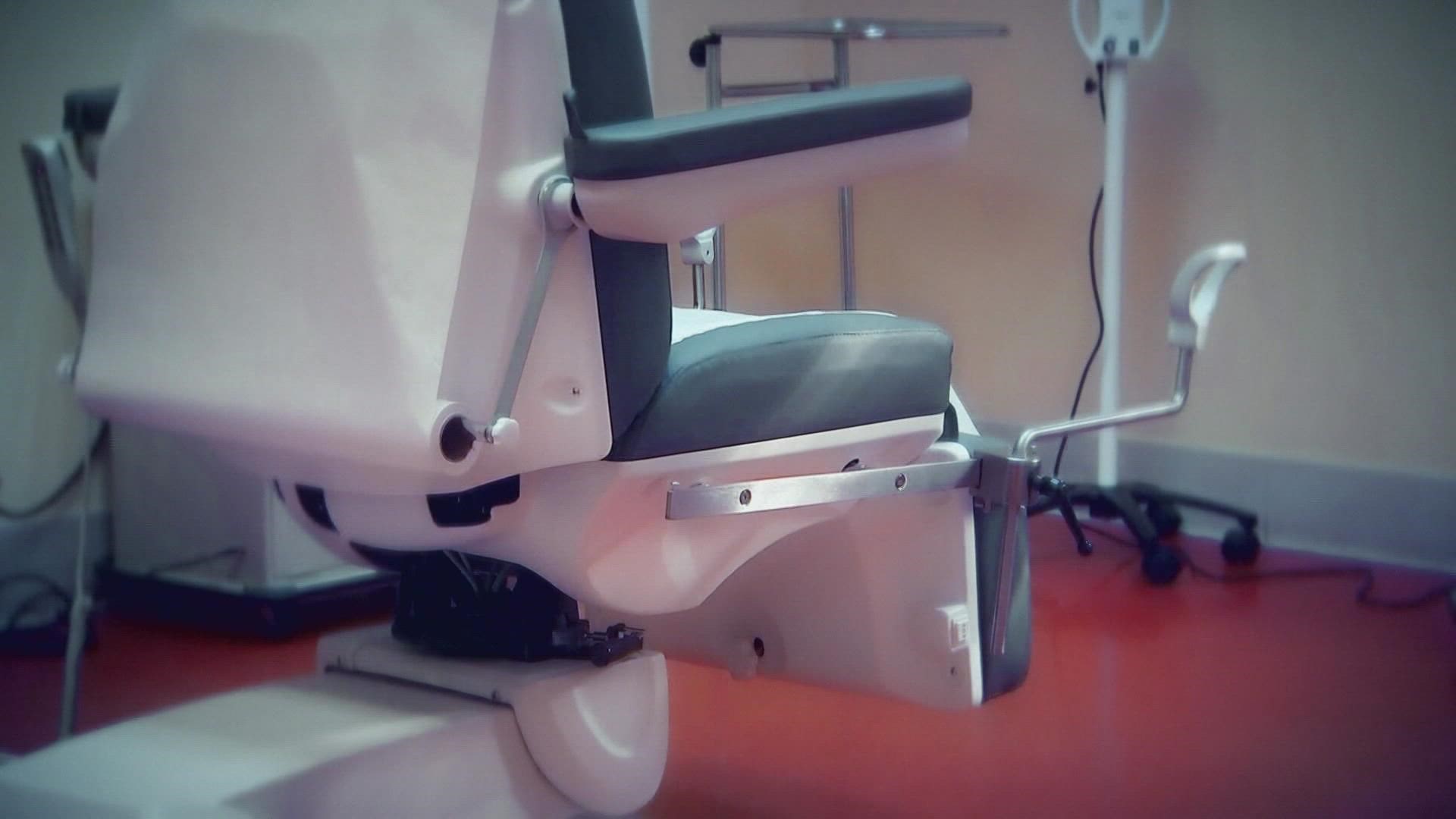INDIANAPOLIS — The American Civil Liberties Union of Indiana filed a class-action lawsuit against the new abortion restrictions set to take effect in Indiana Sept. 15. The lawsuit claims Senate Bill 1 violates the state's Religious Freedom Restoration Act.
The lawsuit was filed on behalf of Hoosier Jews for Choice and five women, who claim their religious beliefs mean they must be allowed to obtain an abortion under circumstances prohibited by the new state restrictions.
The 2015 Religious Freedom Restoration Act prohibits government action that interferes with a person’s religious exercise, unless the government can prove it has a compelling reason for doing so that is the least restrictive alternative available.
The ACLU lawsuit claims that while some religions believe life begins at conception, not all religions agree. Those represented in the lawsuit encompass Judaism, Islam, and independent spiritual belief systems.
“Indiana’s RFRA law protects religious freedom for all Hoosiers, not just those who practice Christianity,” said Ken Falk, legal director of the ACLU of Indiana. “The ban on abortion will substantially burden the exercise of religion by many Hoosiers who, under the new law, would be prevented from obtaining abortions, in conflict with their sincere religious beliefs.”
13News reached out to Attorney General Todd Rokita about the Religious Freedom Restoration Act claims in the lawsuit. He did not address those questions, but issued the following statement:
The Indiana Constitution says nothing about securing the right to abortion, which the state outlawed before, during, and after the time of constitutional adoption. The text, history, and structure of our Constitution excludes any serious argument that abortion is a fundamental right in our state. Our legislators voted to stop these inhumane practices, and it’s why my office is dedicated to defending this life-saving law. Defending validly passed laws, including those intended to protect the unborn is a core mission of the Attorney General.
This is the second lawsuit filed opposing the state's abortion restrictions set to go into place in one week.
On Thursday, the Marion County Prosecutor's Office announced it has retained its own representation in the lawsuit filed by the ACLU.
"The priorities of the Marion County Prosecutor's Office will always reflect the community we serve,” Marion County Prosecutor Ryan Mears said. "We will continue to focus on violent crime and will continue to protect the rights of women, pregnant people, and medical professionals."
Planned Parenthood Great Northwest, Hawai‘i, Alaska, Indiana, Kentucky, Whole Woman’s Health Alliance, Women’s Med Group Professional Corporation, All-Options, Inc., and Dr. Amy Caldwell are arguing against the new law.
Under the new law, abortions can be performed only in hospitals or outpatient centers owned by hospitals, meaning all abortion clinics would lose their licenses. A doctor who performs an illegal abortion or fails to file required reports must also lose their medical license — wording that tightens current Indiana law that says a doctor “may” lose their license.
The ban, which takes effect Sept. 15, includes some exceptions. Abortions would be permitted in cases of rape and incest, before 10 weeks post-fertilization; to protect the life and physical health of the mother; and if a fetus is diagnosed with a lethal anomaly. Victims of rape and incest would not be required to sign a notarized affidavit attesting to an attack, as had once been proposed.
The lawsuit argues the new Indiana law violates both the Indiana Constitution’s right to privacy and equal privileges protections.
"Unless this ban is blocked, patients seeking abortion will be unable to access timely and potentially life-saving care in their own communities," said Alexis McGill Johnson, president and CEO of Planned Parenthood Federation of America. "The abortion ban that the legislature rushed through during a special session — nearly immediately after the U.S. Supreme Court overturned Roe v. Wade — is both dangerous and incredibly cruel."
The ACLU told 13News it is requesting an injunction to block the law from taking effect Sept. 15.
Friday morning, a new special judge was appointed to take over the case – Judge Kelsey B. Hanlon. She serves as the judge for the second Circuit Court in Owen County.
Hanlon is the third judge assigned to the case as part of the Aug. 31 lawsuit.
Monroe County Circuit Court 6 judge Holly Harvey was originally assigned the case. She recused herself, and the case was moved to Circuit Court 1 judge Geoffrey Bradley. He also declined to take the case. Friday morning, Judge Hanlon was assigned to the case.
Judges Harvey and Bradley did not detail why they recused themselves.
Under the state’s Code of Judicial Conduct, there are several reasons that would require a judge to step away from a case. They includes if the judge has “a personal bias or prejudice concerning a party or a party’s lawyer” or if they have personal knowledge of disputed facts for the case. Having a close, personal relationship to someone involved in the case or having a third degree of relationship to someone in the case also disqualifies a judge.

